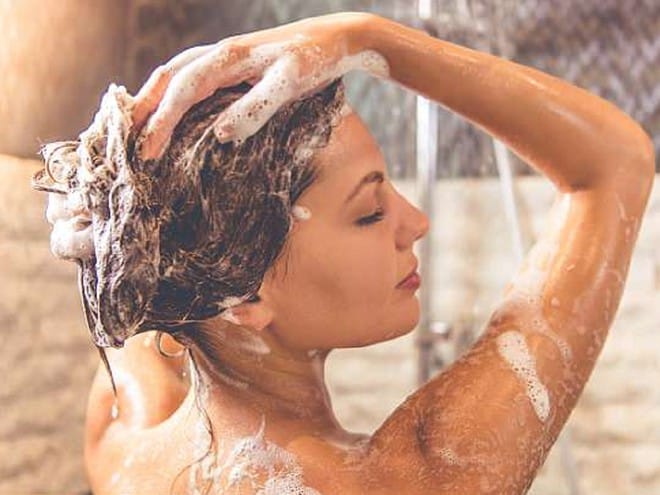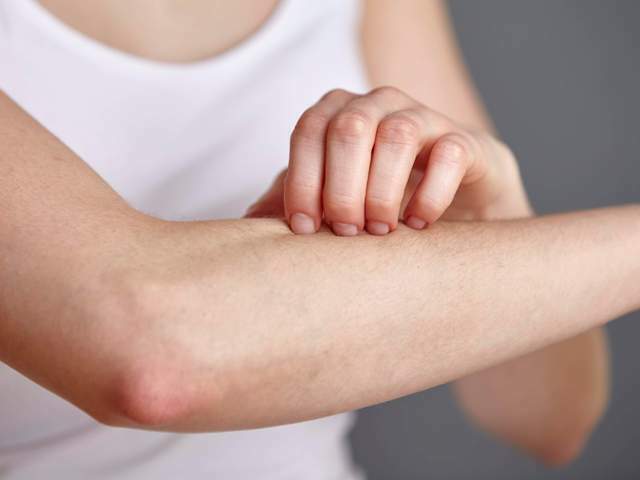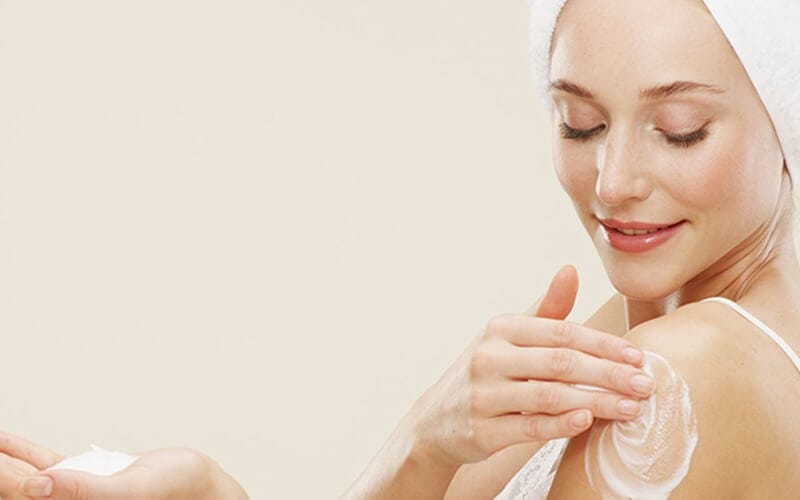
2. How often is too often?
Just because dermatologists recommend bathing every other day or a few times a week doesn’t mean we all have to follow suit, right? Everyone’s skin is unique and can vary depending on factors like seasons, hormones, and the environment.
For instance, my skin tends to get drier during winters and when I’m on acne medication. In such cases, bathing frequently can further dry out my skin. However, during summers or when I’m off the medication, bathing daily becomes a necessity.
There’s no one-size-fits-all rule for how often you should bathe. What’s important is understanding your body and observing how your skin reacts to different bathing frequencies.
Bathing too often can lead to discomfort and various issues, including:
- Itching
- Dry, flaky skin
- Development of eczema and psoriasis
- Brittle hair and nails.

Depending on individual needs, some people may feel the urge to bathe daily. In such cases, experts recommend limiting it to once a day.
Bathing more than that can strip away essential oils. Certain antibacterial soaps can also wash away beneficial bacteria, leading to dryness and potentially causing rashes or eczema. Your skin may become itchy, flaky, and red.
Moreover, for those with psoriasis, bathing more than once a day can exacerbate the condition. Furthermore, excessive bathing can wash away the good bacteria on the skin, increasing the risk of infections.
Aside from health concerns, another reason to cut down on bathing is water conservation. Bathing uses a significant amount of water, more than we may realize.
3. What happens if I don’t bathe enough?
Just as bathing too often can be an issue, so can bathing too infrequently. While we may skip bathing for health reasons, it’s crucial to maintain personal hygiene.
Sweat glands are distributed all over our bodies, and we sweat when we’re hot, stressed, experiencing hormonal changes, or physically active. Sweat itself is odorless until it combines with the bacteria on our skin.
For example, I can skip bathing for a day without any noticeable body odor, especially if I’m not very active and the weather is cool. However, body odor becomes inevitable if I don’t bathe for several days or a week, especially in areas like the underarms.
Of course, we should remember that body odor isn’t a valid reason to bathe frequently. Inadequate personal hygiene can lead to the buildup of dead skin cells, dirt, and sweat on the skin, potentially causing acne and triggering conditions like psoriasis, eczema, and dermatitis.
Bathing too infrequently can disrupt the balance of good and bad bacteria on the skin. An overabundance of bad bacteria can cause infections (similar to how bathing too often washes away the good bacteria). This can lead to dermatitis due to the formation of dirty patches on the skin from a lack of proper cleansing.
Bathing helps remove dead skin cells. When we don’t bathe enough, these cells accumulate, leading to hyperpigmentation.

Bathing too infrequently can easily lead to skin problems.
In summary, not bathing enough can result in:
- Body odor
- Acne
- Skin conditions: dermatitis, eczema, psoriasis
- Infections
- Darkened skin patches
- Thick layers of dead skin.
4. So, how should I bathe?
Here are some tips to bathe appropriately and take care of your skin:
- Bathe once a day (or every other day if possible) if you’re not excessively sweaty. On non-bathing days, wash your face, underarms, and groin with a soft cloth.
- Use warm, not hot, water for bathing.
- Limit your bath time to 5-10 minutes.
- Use mild soap or shower gel, and make sure to rinse off thoroughly.
- Don’t rub your skin with a towel; gently pat it dry instead.
- Avoid using scented soaps, shower gels, and deodorants. (This may be challenging for many.) If you have sensitive skin, these products can cause irritation.
- Apply moisturizer after bathing to keep your skin soft, supple, and healthy.

Apply moisturizer after bathing.
5. Conclusion
Everyone’s needs are different, and it can be challenging for those who are used to bathing daily or those who don’t bathe enough to change their habits quickly. However, for the sake of your health, making this change is worth considering.
Similarly, there’s no universal formula or rule for how often to bathe. The wisest approach is to listen to your body, understand its needs, and treat it with care.
If you’re experiencing skin issues like rashes or irritation, try trusting your body and reducing your bathing frequency. Or, at the very least, shorten your bath time to 5-10 minutes.
I wish you all good health and encourage you to love and care for yourself!
Thank you for reading!
Source: Health Line
With over 15 years of experience in web design and development, I’ve helped hundreds of businesses create comprehensive web development plans to ensure sustainable growth and profitability for their websites.
“The Ultimate Autumn Skin Care Secret: Indulge in This Monthly Treat for Glowing Skin This Season”
The crisp autumn air can leave your skin feeling dry and dull. But fear not, as a simple, delicious, and easy-to-prepare dish can nourish your skin from within. This secret recipe has been passed down from generation to generation among women who want to maintain their youthful glow, especially during the harsh, dry months.
How Many Cups of Roasted Black Bean Water Should You Drink Daily?
Black bean coffee is a delicious and healthy beverage that has gained popularity among health-conscious individuals. But are we maximizing its potential health benefits and consuming it safely? This introductory paragraph aims to intrigue readers and set the tone for an informative article that explores the optimal ways to harness the power of black bean coffee without encountering any undesirable side effects.





































